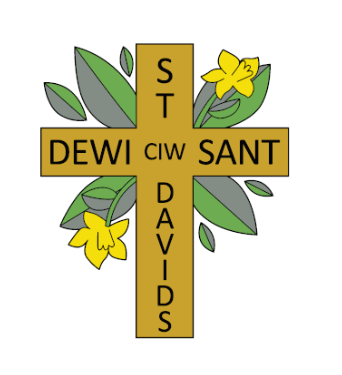- Home
- Key Information/ Gwybodaeth Allweddol
- Curriculum
- Curriculum For Wales
- Our Areas of Learning and Experience
- Humanities
Humanities

Click here to view the latest examples of our Humanities work in action!
At St David's CiW Primary School, learners are encouraged to engage with the most important issues facing humanity, including sustainability and social change, and help to develop the skills necessary to interpret and articulate the past and the present. Within each topic, lessons follow carefully planned sequences which support children to build on their previous knowledge and skills whilst learning new content. Throughout each topic there is a balance of practical, hands-on learning, research reading and written recording of knowledge. This enables learners to become confident, creative and independent learners who can explore the use of different knowledge and skills.
What Matters in Humanities
- Enquiry, exploration and investigation inspire curiosity about the world, its past, present and future.
- Events and human experiences are complex, and are perceived, interpreted and represented in different ways.
- Our natural world is diverse and dynamic, influenced by processes and human actions.
- Human societies are complex and diverse, and shaped by human actions and beliefs.
- Informed, self-aware citizens engage with the challenges and opportunities that face humanity, and are able to take considered and ethical action.
Progression in Humanities
- Increasing breadth and depth of knowledge
- Deepening understanding of the ideas and disciplines within Areas
- Refinement and growing sophistication in the use and application of skills
- Making connections and transferring learning into new contexts
- Increasing effectiveness as a learner
Humanities AoLE
The Humanities Area of Learning and Experience seeks to awaken a sense of wonder, fire the imagination and inspire learners to grow in knowledge, understanding and wisdom. This Area encourages learners to engage with the most important issues facing humanity, including sustainability and social change, and help to develop the skills necessary to interpret and articulate the past and the present.
The Area encompasses geography; history; religion, values and ethics; business studies and social studies. These disciplines share many common themes, concepts and transferable skills, while having their own discrete body of knowledge and skills. Learners may also be introduced to other complementary disciplines, such as classics, economics, law, philosophy, politics, psychology and sociology, if and where appropriate.
What matters in this Area has been expressed in five statements which support and complement one another, and should not be viewed in isolation. Together they contribute to realising the four purposes of the curriculum.
Humanities is central to learners becoming ethical, informed citizens of Wales and the world. In contemporary and historical contexts, investigation and exploration of the human experience in their own localities and elsewhere in Wales, as well as in the wider world, can help learners discover their heritage and develop a sense of place and cynefin. It can also promote an understanding of how the people of Wales, its communities, history, culture, landscape, resources and industries, interrelate with the rest of the world. Contemplating different perspectives will in turn help promote an understanding of the ethnic and cultural diversity within Wales. Taken together, these experiences will help learners appreciate the extent to which they are part of a wider international community, fostering a sense of belonging that can encourage them to contribute positively to their communities.
It is important that learners reflect upon the impact of their actions and those of others, and how such actions are influenced by interpretations of human rights, values, ethics, philosophies, religious and non-religious views. Through being encouraged to engage with, respect and challenge a variety of worldviews, as well as to understand how to exercise their democratic rights, learners can imagine possible futures and take social action. Such critical engagement with local, national and global challenges and opportunities past and present will help learners become enterprising, creative contributors, ready to play a full part in life and work.
As they explore their locality and Wales, as well as the wider world, learners can establish a solid base of knowledge and understanding of geographical, historical, religious, non-religious, business and social studies concepts. This exploration will encourage learners to participate in different methods of enquiry, evaluate the evidence that they find, and apply and communicate their findings effectively. These experiences, in and outside the classroom, will help them become ambitious, capable learners, ready to learn throughout their lives.
It is important that learners have opportunities to discuss and explore their personal perspectives on religious and non-religious worldviews, ethical challenges and social inclusion issues. Likewise, opportunities to explore the natural world, locally, within and beyond Wales, will help foster in them a sense of place and of well-being. These experiences will help develop learners’ resilience, build independence, and increase self-confidence and self-esteem. This will support the development of healthy, confident individuals, ready to lead fulfilling lives as valued members of society.
